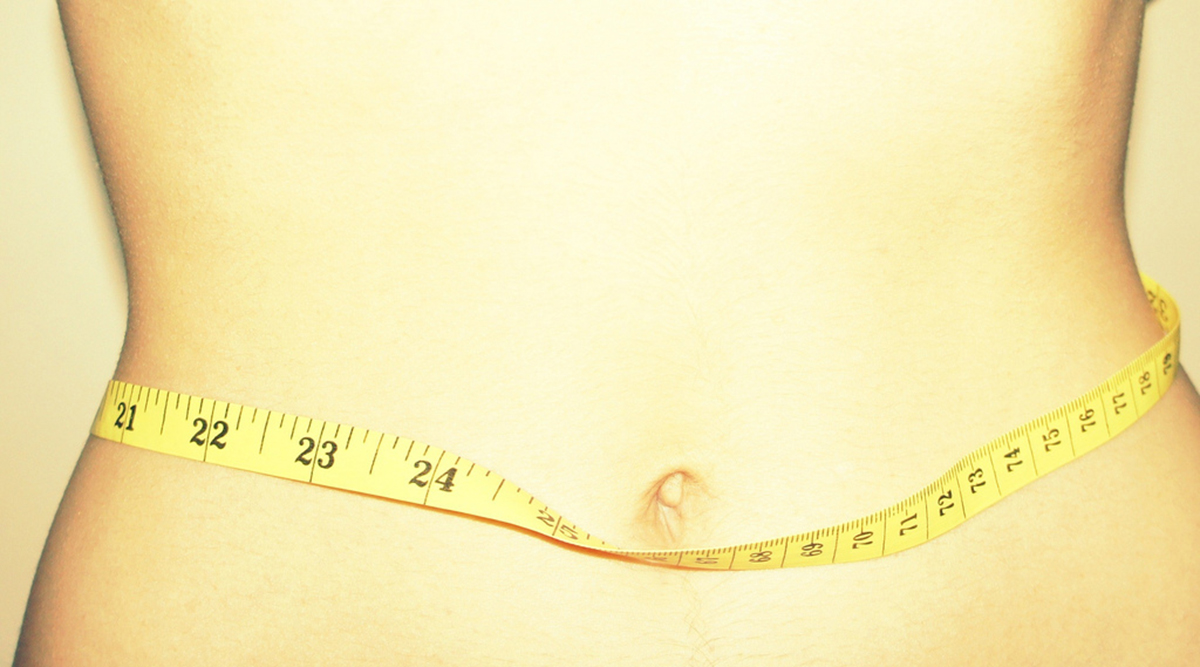Both patients and doctors often think that the use of hormonal birth control can lead to weight gain. Sometimes, this belief can make women feel hesitant about using hormonal birth control, especially when they already suffer from overweight or obesity. Is it scientifically proven that hormonal birth control causes weight gain, though? Let's find out.

Estrogen and Progestin, the Villains of the Story
Estrogen and progesterone are both female hormones that play a very important role in the menstrual cycle and the preparation of the uterus for a possible fertilization. The levels of these two hormones are at their lowest just before menstruation. Then, they start to rise again when the follicle that contains the egg starts to develop. After an ovary releases an egg, both estrogen and progesterone cause the thickening of the lining of the uterus in case the egg is fertilized and needs a proper surface to attach too. [1]
Synthetic estrogen and progesterone, known as progestin, are manufactured to treat health problems related to hormonal imbalances in women, for example, during menopause. Women going through menopause usually take estrogen to compensate the lack of natural hormones during this phase. [2]
Types of Hormonal Birth Control
Nowadays, there are several types of hormonal contraceptives, which not only vary in their form of administration but also in their composition. All of them contain the synthetic versions of estrogen and progesterone, which are normally present in a woman's body. [4]
Birth control pills are one type of hormonal contraceptive. They are made of a combination of estrogen and progestin. There is also the mini pill, which only contains progestin, since some women are not able to take progestin or just want to avoid the side effects that this substance causes. The pill does not stop your menstruation, unless you take two treatments without leaving a week in between them and you have to take it every day, at the same time, for 28 days in a row.
See Also: Side Effects of Birth Control Pills
Most of them stop menstrual cycles and release the hormonal load gradually, as if you were taking the pill every day. Their advantage is that you don't have to worry about remembering to take them every day, as they can be effective for months or even years at a time.
All of these birth control methods have a certain amount of hormones that thicken the mucus of the vagina and avoid the release of the egg by the ovary in order to prevent pregnancy.
Side Effects Of Contraception And The Feared Weight Gain
Most side effects caused by hormonal contraception have to do with the hormonal load that is administered in order to control the ovulatory cycles. For example, headaches, mood changes, occasional bleeding or “spotting”, acne, breast tenderness and nausea are very common side effects of this type of medication. [5]

What About Weight Gain?
Weight gain is also classified as a side effect of the use of hormonal birth control [5]. If you read the leaflet that comes with your contraceptive pills or if you go to the website of the company that commercializes the patch or any other hormonal contraceptive method, it will say that there might be some weight gain, of about 2 to 3 kg, as a result of using that specific contraceptive. However, they also say that weight loss can be experienced too. So, does hormonal contraception cause weight gain or not?
Estrogen and progesterone have been shown to participate in the metabolism of fats, and as such, their synthetic versions would also have an effect on it. [6, 7]
Weight Gain On The Pill: What the Scientific Evidence Says
So, are there any studies regarding hormonal contraceptives and their effect on women's weight? Yes, and you may be surprised about what they tell.
While weight gain is listed as a possible side effect of oral contraceptive use, one large study found that long-term use of combined oral contraception was not a predictor for weight gain. What was? You may have guessed it — aging. You may put on weight if you use the pill for a long time, but it's associated with getting older rather than pill use. [9]
Another study of adolescents found that many perceive weight gain when using hormonal contraceptives, even if there is none, and that this is such a frequent concern that many stop using these contraceptives. [10]
There is also research that concludes that oral contraceptives may negatively affect exercise routines, by causing a decrease in ventilation and oxygen uptake and reactive strength, on the other hand. [11]
See Also: Is Your Hormonal Imbalance Causing a Weight Loss Problem?
It is clear that there is a need for more conclusive evidence, and further studies will certainly be performed in the future. On the whole, it appears that women are more concerned about weight gain from the use of hormonal contraceptives than is necessary, as well as that some believe they have gained weight because of contraceptive use when this is not the case.
Still, there are many women that complain about weight gain after starting using this type of contraception. The reasons underlying this effect may be related to susceptibility to weight gain, genetic background, diet and lifestyle. Should you be unhappy with your current contraceptive, you can always discuss other options with your healthcare provider.
- Photo courtesy of A m o r e Caterina by Flickr: www.flickr.com/photos/amorecaterina/6438482177
- Photo courtesy of Nate Grigg by Flickr: www.flickr.com/photos/nateone/2713580189


Your thoughts on this